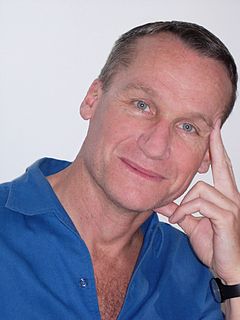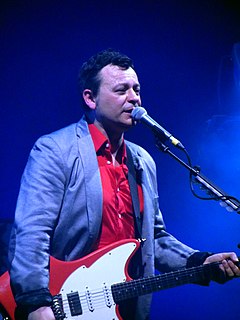A Quote by Ron Padgett
It seems more than likely that the translating of poetry is going to rub off on the translator if he or she is a poet.
Related Quotes
Loneliness is necessary for pure poetry. When someone intrudes into the poet's life (and any sudden personal contact, whether in the bed or in the heart, is an intrusion) the poet loses his or her balance for a moment, slips into being what he or she is, uses his or her poetry as one would use money or sympathy. The person who writes the poetry emerges, tentatively, like a hermit crab from a conch shell. The poet, for that instant, ceases to be a dead person.
The people I've met -- obviously, the people I'm going to meet after concerts are people that bother to hang around and there's going to be more of a chance of things translating to them because they're going to take more time over it, if they're going to wait around to meet us. But so far, it does seem as if things written down are translating into people actually buying it, that kind of way.
When you depart from standard usage, it should be deliberate and not an accidental lapse. Like a poet who breaks the rules of poetry for creative effect, this only works when you know and respect the rule you are breaking. If you have never heard of the rules you are breaking, you have no right to do so, and you are likely to come off like a buffoon or a barbarian. Breaking rules, using slang and archaic language can be effective, but it is just as likely to give you an audience busy with wincing.
Another trouble with poetry - and I'm gonna stop the list at two - is the presence of presumptuousness in poetry, the sense you get in a poem that the poet takes for granted an interest on the reader's part in the poet's autobiographical life, in the poet's memories, problems, difficulties and even minor perceptions.
To evade such temptations is the first duty of the poet. For as the ear is the antechamber to the soul, poetry can adulterate and destroy more surely then lust or gunpowder. The poet's, then, is the highest office of all. His words reach where others fall short. A silly song of Shakespeare's has done more for the poor and the wicked than all the preachers and philanthropists in the world.







































